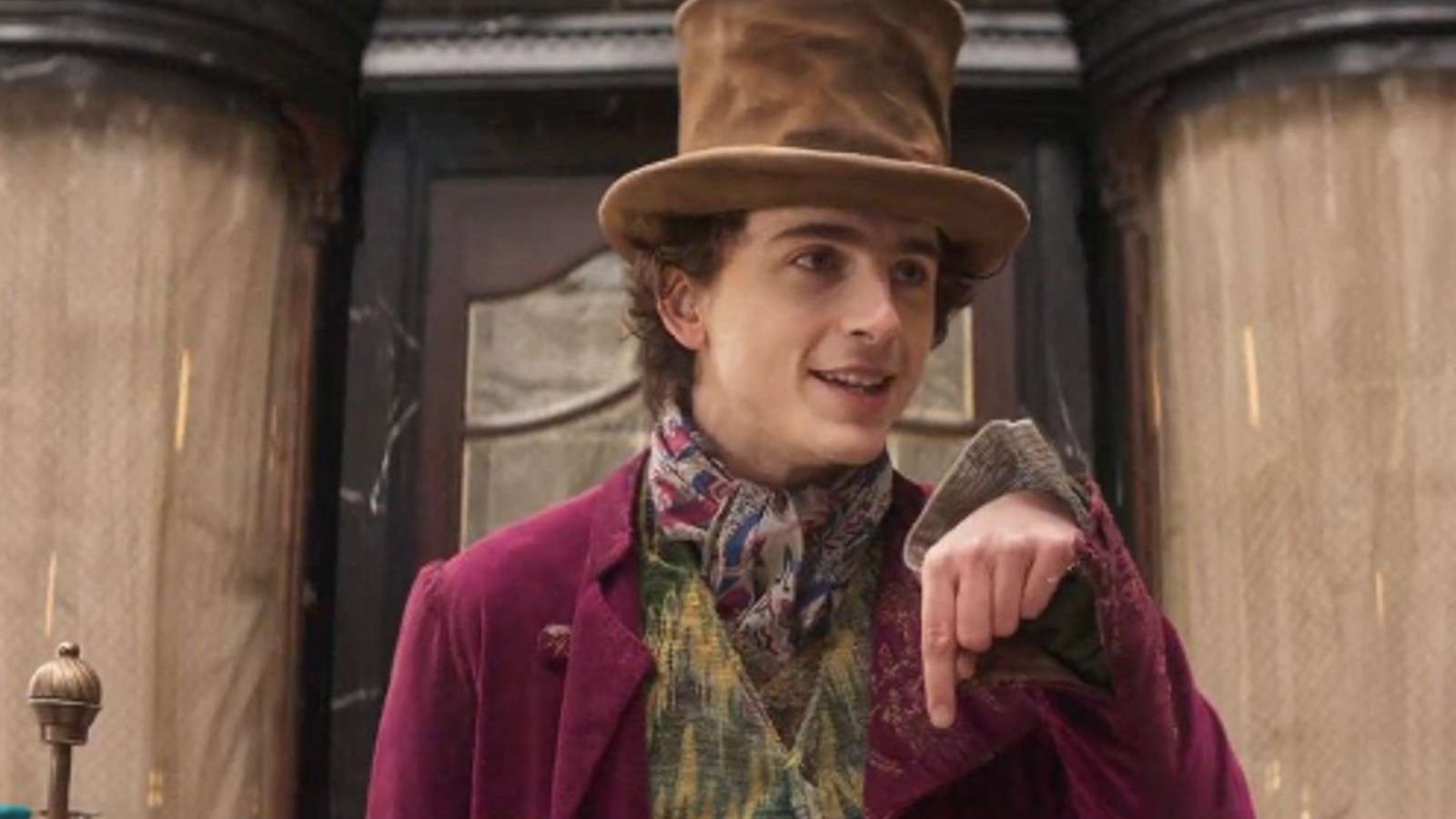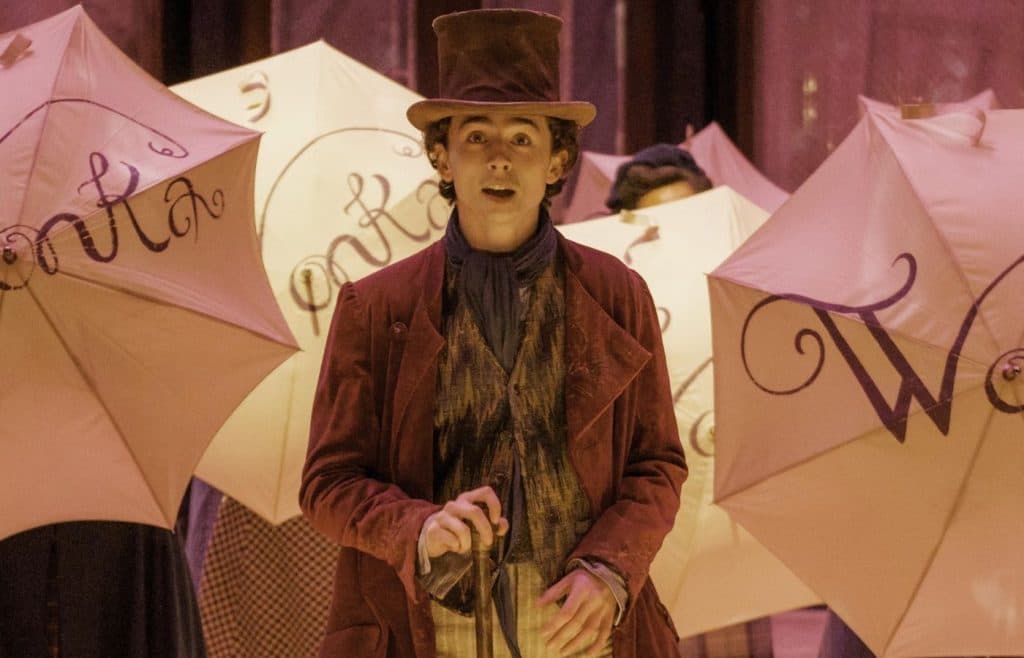Wonka review: This chocolatier still holds his magic
 Warner Bros. Pictures
Warner Bros. PicturesFor many movie lovers, one thing remains a universal truth – Gene Wilder is Willy Wonka. No one can touch his legacy, and no movie can ever ascend to the heights of the 1971 classic Willy Wonka & the Chocolate Factory. Enter Wonka, a challenger who might have just got the latter beat.
Fans have been fairly vocal in the last year about reasons why Wonka just shouldn’t work – and they’ve been right to have concerns. From the casting of Timothée Chalamet in the leading role to pivoting the storyline to be an out-and-out musical, it wasn’t until more recently that Wonka as a prequel was taken seriously.
Some might argue that any movie in the hands of the team behind Paddington shouldn’t be questioned, but Wonka opened to overwhelming positive social media reactions immediately after its world premiere. The question for longtime Wilder fans – and anyone with a social media account – then became “Surely it’s not worth the hype?” Yet somehow, it absolutely is.
In a nutshell, what Wonka has managed to do is take the essence of Willy Wonka’s magic and distill it into what it should have been in the first place. Where Wilder’s undoubtedly impeccable portrayal is shrowded in questionable aging and traumatizing sequences, Chalamet’s is bubble-wrapped in hope, optimism, and carefree endearment. Inner children and real kids alike, isn’t that what we all deserve? Warning – minor spoilers ahead!
The wonder of Willy Wonka is elevated
Wonka follows the chocolatier’s steps before the creation of his infamous chocolate factory, which basically involves him being the magical equivalent of Del Boy on a market stall. Along the way, he falls prey to the wicked ways of Mrs. Scrubbit (Olivia Colman) who, as fans have already suggested, is channelling big Sweeney Todd energy. Naïve Wonka might be, but fearful he isn’t, dedicating his time to gifting the world with magic and making a better life for those around him.
Addressing the elephant in the room first, Timothée Chalamet is undeniably remarkable in the role of Wonka. Feeling as though he is the perfect precursor to Wilder’s version, he captures Willy Wonka’s naivety and childhood whimsy with aplomb without straying into overkill. There’s oodles of charm without insincerity, keeping his backstory on the right side of fictional history as well as real-life morality. In short, there’s is nothing to dislike about the guy – and who can be an overarching people pleaser better than Chalamet?
Under the firm hand of director Paul King, Wonka’s additional cast, production value, and score all work hard to pull equal weight. Colman packs her antagonist with wicked one-liners and an accent to rival Danny Dyer’s while former Downton Abbey Carson Jim Carter leads a new downstairs team with an innocent twinkle in his eye. No detail sails at half-mast when it comes to Wonka’s increasingly real world of pure imagination, with plenty of nods of respect to the films that came before. The original musical soundtrack will also be a crowd-pleaser, making the pivot to an all-out musical make total sense.
However, there’s one sour spot
 Warner Bros.
Warner Bros.While all is well and good in the world of chocolate, hopeful dreams, and comical villains, there is one misjudged running joke that leaves a sour note. While trying to bring Wonka down at the behest of his rivals, the police chief played by Keegan-Michael Key gains an increasing amount of weight during the movie after being bribed with chocolate (which yes, does translate to Key being in a fat suit). Not only does the running gag feel insensitive while sticking out like a sore thumb against Wonka’s cotton candy demeanor, but it also adds nothing to the narrative. Though previous Chocolate Factory characters like Augustus Gloop arguably play into similar tropes, there’s no real excuse or bonafide validity for the addition of the fat suit.
There’s also the inclusion of an Oompa Loompa, being given its face and voice by Hugh Grant. As dry as Americans might expect of the British, Grant is incredibly entertaining in the role, teaching Wonka the harsh realities of the world without him even realizing it. It’s important to note that there are criticisms of the character of the Oompa Loompa too, as well as how he has been included in Wonka. While this is going to remain a point of contention, there arguably needed to be a link to provide enough context to work as a prequel.
It’s disappointing for Wonka to be weighed down by its bad decisions, though thankfully its other elements give the movie a lot of merit. As a story of an innocent-turned-creepy character that continues to evolve over time, it will hopefully be helpful for many to see the flaws that Willy Wonka still has attached to his creation. Though the movie hasn’t directly called out or challenged its stereotypical issues, it has left them in full view, meaning we aren’t just skating over history – we actually have a chance to learn from what we know.
Wonka review score: 4/5
Like any movie ever made, Wonka challenges us to hold two types of thought at once – not only is the film exceptionally delivering on changing the chocolatier’s story to one of unfiltered joy, but it also doesn’t go far enough in addressing stereotyping concerns and underhand humor.
For kids who have routinely been traumatized by their parents making them watch Willy Wonka & the Chocolate Factory growing up (or by Johnny Depp’s rendition of the role altogether), Wonka is the ideal chance to repair, re-heal, and carry forward the magic.
Wonka is in theaters on December 8 in the U.K., and December 15 in the U.S. To check out more of Dexerto’s TV and movie coverage, click here.



